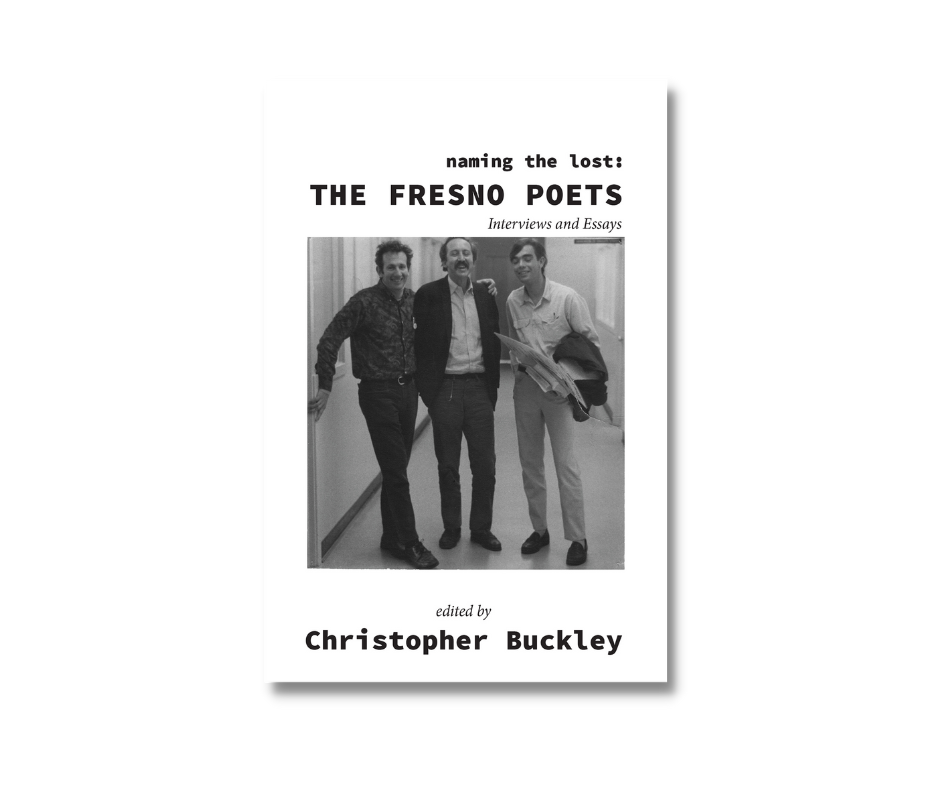Selected Anthologies
Poems and prose published in literary anthologies since 1997.
Naming the Lost: The Fresno Poets—Interviews and Essays
Edited by Christopher Buckley
Publisher: Stephen F. Austin University Press (2021)
Naming the Lost: The Fresno Poets—Interviews and Essays, preserves an amazing nexus of poetic talent and fellowship, and documents the providence that brought so many outstanding poets to Fresno, starting in the early 1960s.
Dear America: Letters of Hope, Habitat, Defiance, and Democracy
Edited by Simmons Buntin, Elizabeth Dodd, and Derek Sheffield
Publisher: Trinity University Press (2020)
Nearly two hundred writers, artists, scientists, and political and community leaders offer their impassioned letters to America, in a project envisioned by the online journal Terrain.org. Herrick’s letter, “Each One a Bright Light,” appears.
California Fire & Water: A Climate Crisis Anthology
Edited by Molly Fisk
Publisher: Story Street Press (2020)
Former Nevada County Poet Laureate Molly Fisk created a project to teach kids across California to write poems about climate crisis as a way to work out their feelings about it. Also including poems by Brenda Hillman, Danusha Lameris, Ellen Bass, Gary Snyder, Indigo Moor, Jane Hirshfield, Juan Felipe Herrera, Kim Addonizio, Kim Shuck, Lee Herrick, Marcelo Hernandez Castillo, and a foreword by SA Smythe. Herrick’s poem “How to Spend a Birthday” appears.
HERE: Poems for the Planet
Edited by Elizabeth J. Coleman, with a foreword by His Holiness the Dalai Lama
Publisher: Copper Canyon Press (2019)
Summoning a chorus of over 125 diverse poetic voices, this anthology approaches the impending environmental crisis with a sense of urgency and hopefulness. Herrick’s poem, “A Thousand Saxophones,” appears.
Indivisible: Poems for Social Justice
Edited by Gail Bush and Randy Meyer, with a foreword by Common
Publisher: Norwood House Press (2013)
Indivisible: Poems for Social Justice is an anthology of 20th century American poems arranged to take the reader on a journey, from outside-in, toward leading action for social change. Includes poems by Langston Hughes, Joy Harjo, Mary Oliver, and Tupac Shakur. Herrick’s poem, “jap,” appears.
One for the Money: The Sentence as Poetic Form
Edited by Christopher Buckley and Gary Young
Publisher: Lynx House Press (2012)
A poetry workshop and handbook, this anthology features poems from 80 poets, including Kay Ryan, Philip Levine, William Shakespeare, and John Keats. Herrick’s poem, “Korean Poet in California,” appears.
More Than Soil, More Than Sky: the Modesto Poets
Edited by Sam Piersorff, Gillian Wegener, Stella Beratlis, and Ed Bearden
Publisher: Quercus Review Press (2011)
More Than Soil, More Than Sky gathers the diverse voices, styles, and subject matter that come from poets living in and around one small town in the heart of California's Great Central Valley. Herrick’s poems appear: “Freedom,” “Salvation,” “Gardening Secrets of the Dead,” and “Adoption Music.”
The Place That Inhabits Us: Poems of the San Francisco Bay Watershed
Edited by Sixteen Rivers Press, with a foreword by Robert Hass
Publisher: Sixteen Rivers Press (2010)
Selected by the members of Sixteen Rivers Press, a regional poetry collective named after the web of rivers that flow into San Francisco Bay, these poems are drawn from both a physical and a metaphoric watershed. Herrick’s poem, “Ars Poetica,” appears.
Highway 99: A Literary Journey Through California’s Great Central Valley, 2nd edition
Edited by Stan Yogi, Gayle Mak, and Patricia Wakida
Publisher: Heyday Books (2007)
The popular anthology features poetry and prose from writers including William Saroyan, Maxine Hong Kingston, Larry Levis, Gary Soto, and Juan Felipe Herrera. Herrick’s poem, “In the Tower District,” appears.
Seeds from a Silent Tree: An Anthology by Korean Adoptees
Edited by Jo Rankin and Tonya Bishoff
Publisher: Pandal Press (1997)
This groundbreaking literary anthology was the first collection of its kind, focusing exclusively on the writings of Korean transnational adoptees based in the United States. Herrick’s poem, “jap,” appears.









